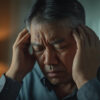A concussion is a mild traumatic brain injury that can occur due to a blow to the head or other whiplash-type injuries that cause rapid movement of the head and neck. Although often experienced as a result of sports injuries or motor vehicle accidents, concussions can happen in various scenarios and affect people of all ages and lifestyles. Concussion symptoms are diverse and can range from headaches, dizziness, and fatigue to cognitive difficulties, sleep disturbances, and emotional changes. Effectively assessing and managing concussion symptoms is crucial for a safe and successful recovery.
While many individuals may associate physiotherapy primarily with treating musculoskeletal issues, physiotherapists play a vital role in concussion management as well. Whitehorse Physiotherapy offers a comprehensive approach to assess, treat, and support individuals throughout their concussion recovery process. With a commitment to providing personalized and holistic care, our physiotherapy team is dedicated to helping clients regain their well-being and return to daily activities, work, or sports with confidence.
In this article, we will explore the essential role of physiotherapy in concussion management, discussing the various assessments and treatments that physiotherapists employ to address both physical and cognitive symptoms. By highlighting the importance of interdisciplinary collaboration in concussion recovery, we aim to empower individuals facing post-concussion challenges and provide insights into navigating the complexities of the healing process. Join us in uncovering the remarkable potential of physiotherapy in concussion management, and learn how Whitehorse Physiotherapy can be an invaluable ally on your journey to recovery.
1. The Varied Symptoms of a Concussion: Recognizing the Signs
The symptoms of a concussion can vary significantly from person to person, making it essential to be aware of the diverse range of possible signs. Symptoms can appear immediately after the injury or slowly manifest in the hours or days following the incident. Some common concussion symptoms include:
- Physical: Headaches, dizziness, sensitivity to light or sound, balance problems, and nausea.
- Cognitive: Difficulty concentrating, memory issues, slow mental processing, and confusion.
- Sleep-Related: Restlessness, insomnia, or sleeping more than usual.
- Emotional: Mood swings, irritability, anxiety, or depression.
2. Assessing Concussions: A Multifaceted Approach
Properly assessing concussions is crucial for determining the appropriate course of treatment and ensuring a safe recovery process. Physiotherapists employ a range of assessment tools to gain a comprehensive understanding of a client's condition. Various factors, like symptom severity, duration, and impact on daily functioning, are considered when evaluating a concussion. Some of the components of a thorough concussion assessment can include:
- Physical Exam: Evaluating the head, neck, and neurological systems for signs consistent with a concussion.
- Vestibular and Balance Assessments: Examining balance, coordination, and the vestibular system to identify any problems related to dizziness or spatial awareness.
- Oculomotor Assessments: Assessing eye movements and ocular function, which can often be impacted by a concussion.
- Cognitive Screenings: Utilizing questionnaires or computer-based tools to evaluate cognitive functioning and identify difficulties in areas like memory, attention, or processing speed.
3. Customized Treatment Plans: Addressing the Unique Needs of Each Individual
Physiotherapy-based concussion treatment plans are tailored to each person's specific symptoms, needs, and goals. Interventions can vary greatly depending on factors such as symptom severity, duration, and comorbidities. Some common components of a physiotherapy-led concussion treatment plan can include:
- Education and Lifestyle Modifications: Providing clients with information about concussion recovery, including activity modifications, rest recommendations, and strategies for managing symptoms.
- Neck and Musculoskeletal Rehabilitation: Addressing any neck pain, muscle imbalances, or biomechanical issues that may be contributing to concussion symptoms.
- Vestibular Rehabilitation: Utilizing specialized exercises and techniques to improve balance, dizziness, and spatial awareness.
- Oculomotor Rehabilitation: Implementing targeted exercises and strategies to address issues with eye movements and ocular function.
- Cognitive Strategies: Offering guidance on techniques to improve cognitive function, manage mental fatigue, and achieve a successful return to work or school.
4. Interdisciplinary Collaboration: A Holistic Approach to Concussion Recovery
Concussion recovery often involves the collaboration of multiple healthcare providers, with physiotherapists playing a pivotal role in addressing the diverse symptoms and challenges that can arise. Working alongside family doctors, sports medicine specialists, and neurologists, physiotherapists coordinate care to ensure optimal support and seamless communication. By employing this interdisciplinary approach, a well-rounded and holistic recovery process can be achieved, integrating various therapies and perspectives to facilitate comprehensive and lasting healing.
Reclaim Your Health with the Support of Whitehorse Physiotherapy
Facing a concussion recovery journey can be daunting, but with the support and expertise of Whitehorse Physiotherapy, you can confidently navigate the path to healing. Our skilled team of physiotherapists is dedicated to providing comprehensive and client-centered care, ensuring that each individual's unique needs and experiences are acknowledged and addressed. From thorough assessments to customized treatment plans, and through our commitment to interdisciplinary care, we strive to empower individuals grappling with post-concussion challenges and guide them towards restored health, function, and well-being.
Don't let a concussion stand in the way of your quality of life. Trust the team at Whitehorse Physiotherapy to provide the guidance, support, and professional expertise necessary to help you achieve a successful recovery. With a focus on compassionate care and tailored solutions, our physiotherapists will work alongside you throughout your journey, empowering you to regain your health and reclaim your daily life with confidence.





